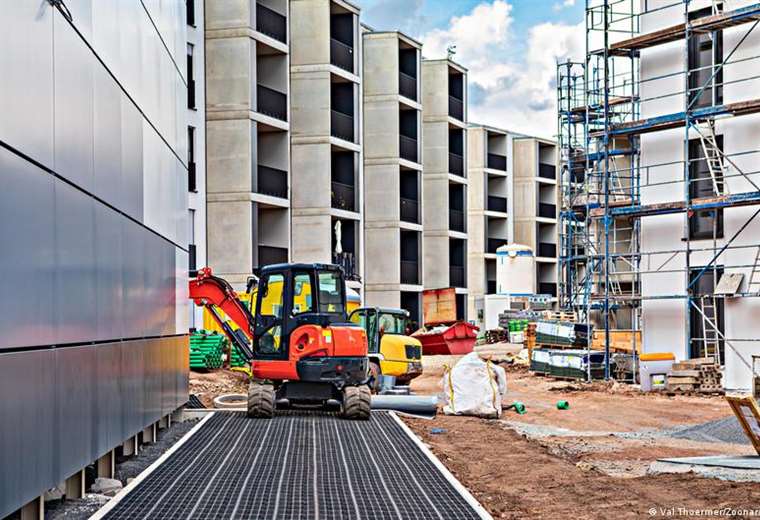July 17, 2023, 23:00 PM
July 17, 2023, 23:00 PM
In many European countries, citizens do not have enough resources to buy their own home. Rising inflation, rising interest rates and the cost-of-living crisis of the past two years have exacerbated the continent’s long-standing housing problem.
House prices in Europe had been on an upward curve for almost a decade, driven largely by institutional investment. Since the first quarter of 2015, when prices began to rise rapidly, house prices in the EU have increased faster than rents in every quarter until the second half of 2022. In total, average house prices in the EU increased by 43% in that period.
The rise in prices accelerated during the pandemic, since then many people decided to buy a property to live in it. In 2020 and 2021, the EU house price index rose at a much faster rate than in the previous five years of growth.
However, in the last three months of 2022, the index fell, after 30 successive quarters of growth. Current EU figures show that prices are falling, for the second consecutive quarter. In total, the index has fallen 2.9% in six months.
Rising loan prices hold back buyers
In Germany, house prices fell 6.8% in 2022, the biggest year-on-year drop since 2000. The German Federal Statistics Agency attributed the drop to inflation and “higher financing costs.” There are also signs that the supply is running out. In April 2023, the construction of almost a third fewer apartments was approved in Germany than in the same month of 2022.
“We have a real lack of housing and, at the same time, we are canceling the construction of new ones,” Ludwig Dorffmeister, a specialist in construction and real estate markets at the Ifo institute, told DW.
Another reason, according to Thomas Hein of ING’s real estate finance division, is the general uncertainty surrounding the German market. According to Hein, the controversy over the imminent promulgation of the Energy in Building Law in Germany has generated uncertainty among potential homebuyers because there is still no clarity on energy efficiency requirements.
In many developed economies, experts say the main reason is rising borrowing costs. A sharp rise in mortgage interest rates has affected overall affordability, according to Andrew Goodwin, UK chief economist at Oxford Economics “Based on mortgage affordability, we estimate that prices are currently overvalued, around a 30%,” he told DW.
The price drop is slowing down
Oxford Economics arrived at this 30% figure by calculating what it called “fair value”, that is, an affordable mortgage payment for a household with a median level of income before taxes, taking out a new mortgage with a 25% deposit.
The group’s affordability benchmark was the average proportion of pre-tax income accounted for by mortgage payments since 2000. Even if UK homes are at least 30% overvalued, as Goodwin estimates, he doesn’t think it’s going to a crash or anything like that.
In fact, there are signs that the slowdown may be slowing down before it has really started. In Germany, prices fell 3.1% in the first three months of 2023, less than the 4.9% drop in the previous quarter. Although prices may continue to fall for a while longer, experts believe that the situation will soon stabilize.


















